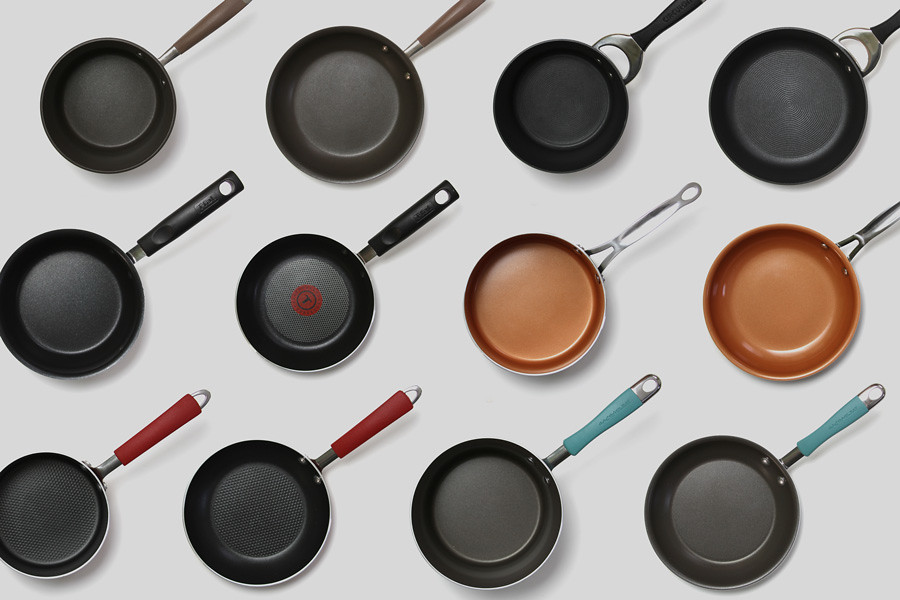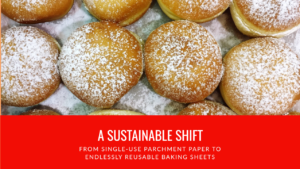
OEM PTFE vs. Secondary Market Products:
Why Choosing the Secondary Market for PTFE Smallwares in the Food Service Industry Saves You Money While Still Getting Equal or Better Quality When it

PFOA is short for Perfluorooctanoic acid, a synthetic used in a wide range of industrial chemical processes. Because it is hydrophobic (repels water) and lipophobic (repels fats) its uses range broadly as a “surfactant”. In short, PFOA is a chemical coating designed to make production easier.
PFOA is everywhere; Popcorn bags, stain-resistant carpet treatment, water-repellent clothes, paper and cardboard packaging, ski wax, and foams used to fight fires. Because it is so ubiquitous, 98% of the US population has traces of it in their blood. You’re most likely to come in contact with PFOA in the air, water, and soil, all of which are runoff from the manufacturing processes.
To address these exposure levels, steps are being taken by various industries to eliminate use of PFOA, and in May of 2019 a UN Conference in Geneva voted unanimously to ban the chemical globally (with several exceptions).
PTFE, Teflon, Non-stick; These are all names for the same product. PTFE is the abbreviated name of the chemical compound Polytetrafluoroethylene. Teflon, the brand name given to the first PTFE, is owned by DuPont, who discovered the compound in 1938. All products marketed as non-stick are likewise the same compound, PTFE.
Non-stick (PTFE) products can be manufactured without PFOA, as it is not a component of non-stickware itself. In fact, no cookware in your cabinets contains PFOA. According to Bill Walker of the Environmental Working Group, it burns off during the production process.
Studies of water quality in manufacturing zones revealed countless health issues associated with PFOA, where the chemical leached into the water supply. The result was a settlement requiring DuPont and 7 other corporations to transition to a PFOA-free process, eliminating the major environmental risk factor associated with their line of Teflon products.
The World Health Organization has classed PFOA as “possibly carcinogenic to humans,” and studies are underway to evaluate the long term effects. So far, no studies have found conclusive evidence, but the FDA has discovered links to a host of medical issues, ranging from kidney cancer to high blood pressure. For cookware that has been certified PFOA-free, rest assured— cancer.org states that Teflon/non-stick products are not suspected of causing cancer.
In the wake of the DuPont lawsuit that drew health issues with PFOA to light, the industry followed suit; many nonstick products are produced and marketed as PFOA-free.
Some consumers still worry whether Teflon and other nonstick pans are safe; When heated past 550° F, the compounds begin to break down, releasing gases into the air. This may result in flu-like symptoms, and can be fatal to pet birds, whose respiratory systems can’t regulate the toxin— much like the canary in a coal mine, many believe that if it’s unsafe for our aviary companions, its toxins are affecting us, too.
However, many experts agree a non-stick pan won’t exude enough toxins to harm a human. When you meant to only walk away for a minute and get a caustic whiff from the kitchen, just turn off the burner and let the surface cool before using. If the base of your nonstick pan begins to flake, don’t worry. It means it is time to replace it, but poses no threat if accidentally consumed. PTFE flakes will pass through the system without having time to absorb into your the bloodstream.
For a deeper dive into the safety range of nonstick equipment, check out Good Housekeeping’s article, where they tested a range of pans and asked experts to weigh in.

(image from Good Housekeeping article: Is Nonstick Cookware Safe? Here’s Everything You Need to Know, According to Experts)
Essentialware has partnered with each of our suppliers to ensure that all products are PFOA-free, so you can grill, heat press, and bake with assurance that your home and environment are clean.
Contact Us to find a distributor or talk to our sales team about fulfilling your nonstick needs today.

Why Choosing the Secondary Market for PTFE Smallwares in the Food Service Industry Saves You Money While Still Getting Equal or Better Quality When it

Commercial kitchens are bustling hubs of culinary creativity, constantly striving to meet the demands of a hungry customer base. However, a significant challenge faced by

A Sustainable Shift: Silicone-Coated Parchment Paper vs. Reusable PTFE Baking Sheets In the realm of baking, the quest for sustainable alternatives has led to a

Have you ever wondered about the magic behind non-stick pans or the effortless glide of your kitchen tools? The secret ingredient lies in a remarkable
7637 Euclid Chardon Rd
Kirtland, Ohio 44094
Phone Numbers
Toll Free: 888-975-0405 | Local: 330-975-0405 |
Fax: 888-201-1196
(C) 2024 Essentialware. All Rights Reserved.